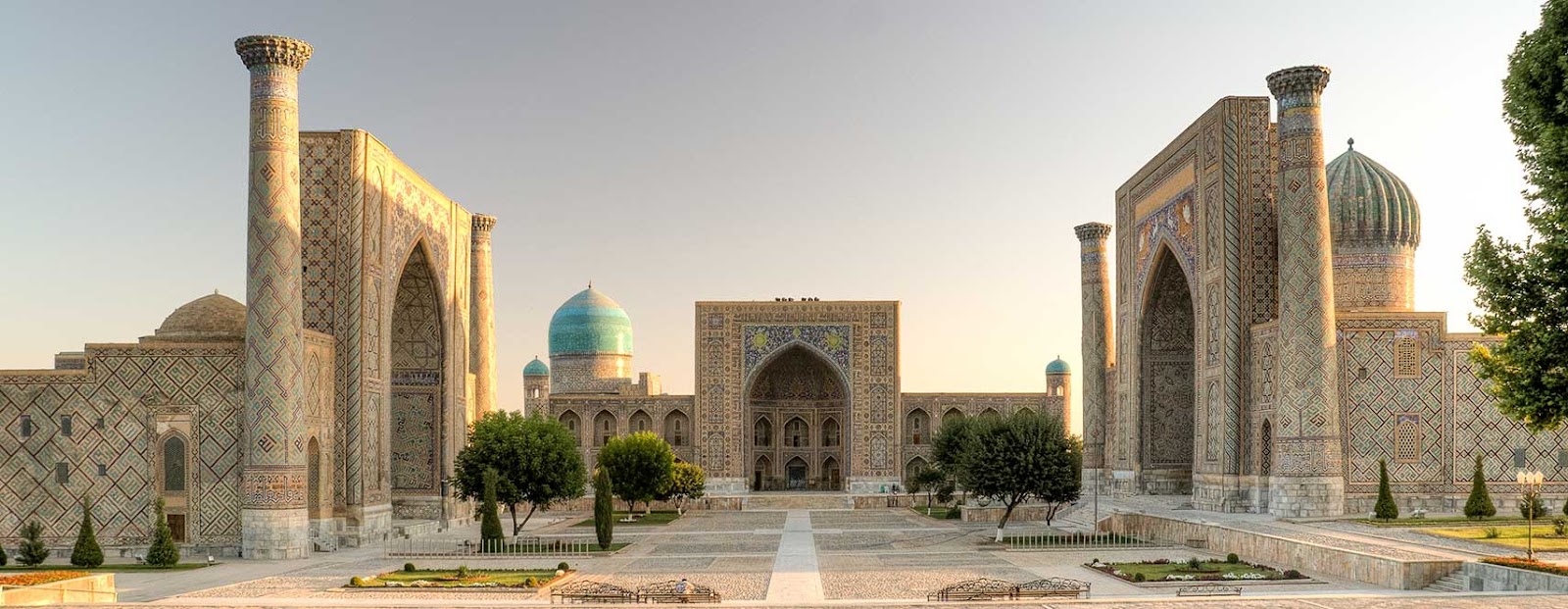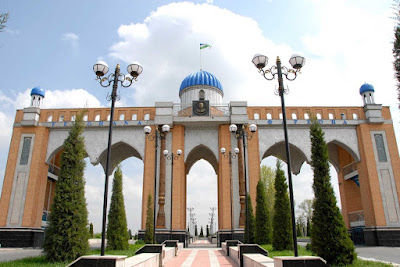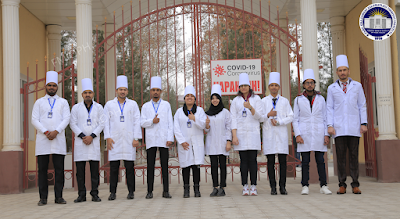Capital: Tashkent
Currency:Uzbekistani soʻm
Population: 33,469,203 people at mid year (2020) according to UN data
The Republic of Uzbekistan gained independence in 1991,after being part of the former Soviet Union since 1924,
and it has begun its transition to a market economy.Uzbekistan is a presidential republic, and conducts presidential and parliamentary elections on a regular basis.
The President of Uzbekistan is Shavkat Mirziyoyev Uzbekistan is a doubly landlocked country located in
Central Asia that borders the countries of Afghanistan,Kazakhstan, Kyrgyzstan, Tajikistan, and Turkmenistan.
Uzbekistan has a varied landscape that includes a rolling sandy desert, mountains along the border with Tajikistan, and the Aral Sea in the west. The government system is a republic under authoritarian presidential rule, with little power outside the executive branch; the chief of state is the president, and the head of government is the prime minister. Uzbekistan has a mixed economy in which there is limited private freedom, but the economy remains highly controlled by the government.
Languages:
Some 74.3 percent of the population speaks Uzbek, 14.2 percent Russian, and 4.4 percent Tajik.
Climate:
The climate of landlocked Uzbekistan is continental, with hot summers and cool winters. Summer temperatures reach 40°C, averaging 32°C. Winter temperatures reach –38°C, averaging –23°C. Rainfall averages vary between 100 millimeters per year in the northwest and 800 millimeters per year in the Tashkent region. Precipitation falls mainly in the winter and spring.
Time Zone:
Uzbekistan’s time zone is five hours ahead of Greenwich Mean Time.
About FERGANA CITY
Elevation: 590 m (1,940 ft)
Weather:28°C, Wind W at 18 km/h, 24% Humidity
Population: 299,200 as of 2022
Region:Fergana Region
Established : 1876
Area code(s) : (+998) 73
Fergana, or Ferghana, is the capital of Fergana Region in eastern Uzbekistan. Fergana is about 420 km east of Tashkent, about 75 km west of Andijan, and less than 20 km from the Kyrgyzstan border. While the area has been populated for thousands of years, the modern city was
founded in 1876. Fergana region is one of the centers of ancient culture of Uzbekistan. Pictures of Stone Age settlements and rocks found in the area, stone tools indicate that people have lived in the valley since ancient times.
Excavation of the Greater Fergana Canal has played
an important role in the study of archeological monuments of the region. During the excavation of the
canal, monuments of the Bronze Age, slavery and landownership were found and examined.
Finds from the 5th century BC and early Middle Ages in the city of Kuva are well researched. Historical sources from the 10th to the 11th centuries state that this city was the largest city in the valley after Akhsikat in terms of prosperity and size. Archaeological materials prove that the city of Margilan was a large village in the 10th century and took on the appearance of a village in the 11th-12th centuries.
INDUSTRY
At present, 38 large industrial enterprises, 7930 small industrial enterprises, 446 joint ventures include the Fergana Oil Refinery, the Azot Production Association, the Quvasoy Quartz Joint-Stock Company, the Eurasian TAPO-Disk, Avtooyna, and DEU Textile joint ventures. They export oil, cotton, food, canned goods,construction materials, car discs, spare parts and agricultural products and other products to foreign countries.
SPORTS
In 1991, there were only 17 stadiums in Fergana region, now there are 46, 759 football fields, 33 modern tennis courts. In May 2016, the final stage of the Universiade-2016 was held in Fergana.
EDUCATION
Today, 946 secondary schools, academic lyceums , 1,870 pres chool education institutions and 20 libraries operate in the region. There are 5 higher education institutions in the region: Fergana State University, Fergana PolytechnicInstitute, Kokand State Pedagogical Institute, Tashkent University of Information Technologies Fergana branch, Tashkent Medical Academy Fergana branch.
Top Medical Universities in Uzbekistan
Fergana Medical Institute of Public Health
Fergana Medical Institute of Public Health has introduced the latest technologies in its teaching methods. It offers various faculties for the medical students including General Medicine, preventive medicine, higher nursing, biomedical engineering, and many more.





